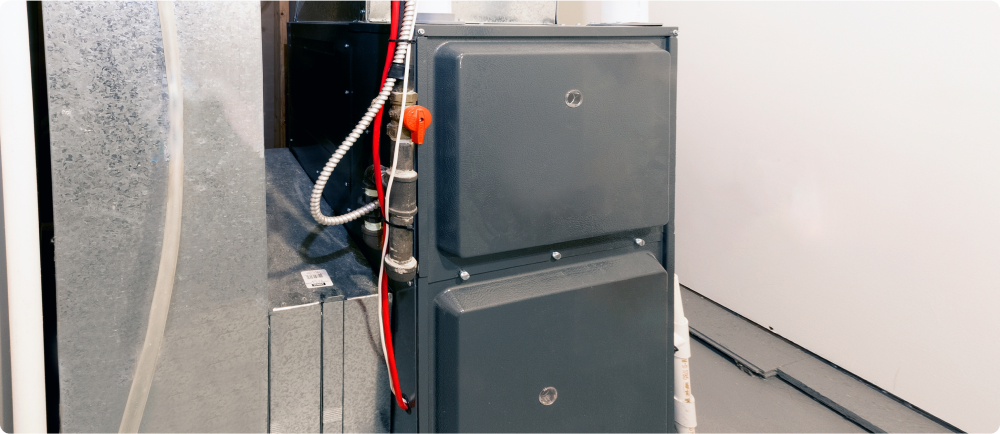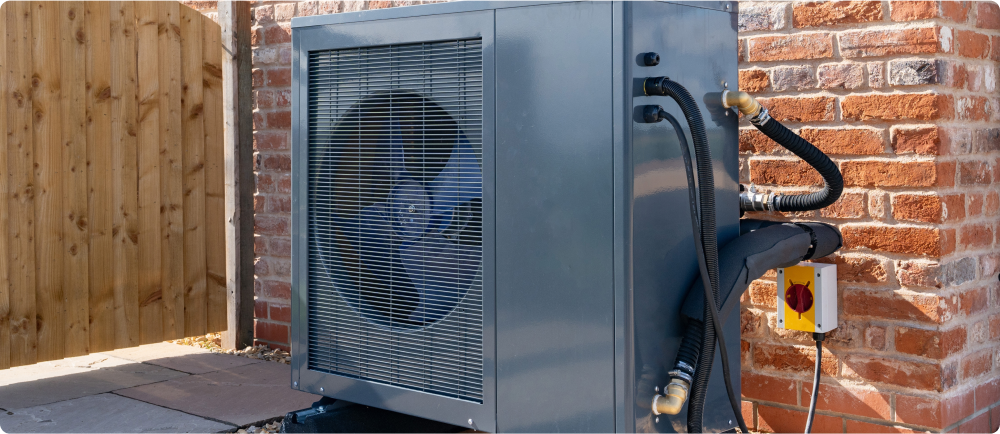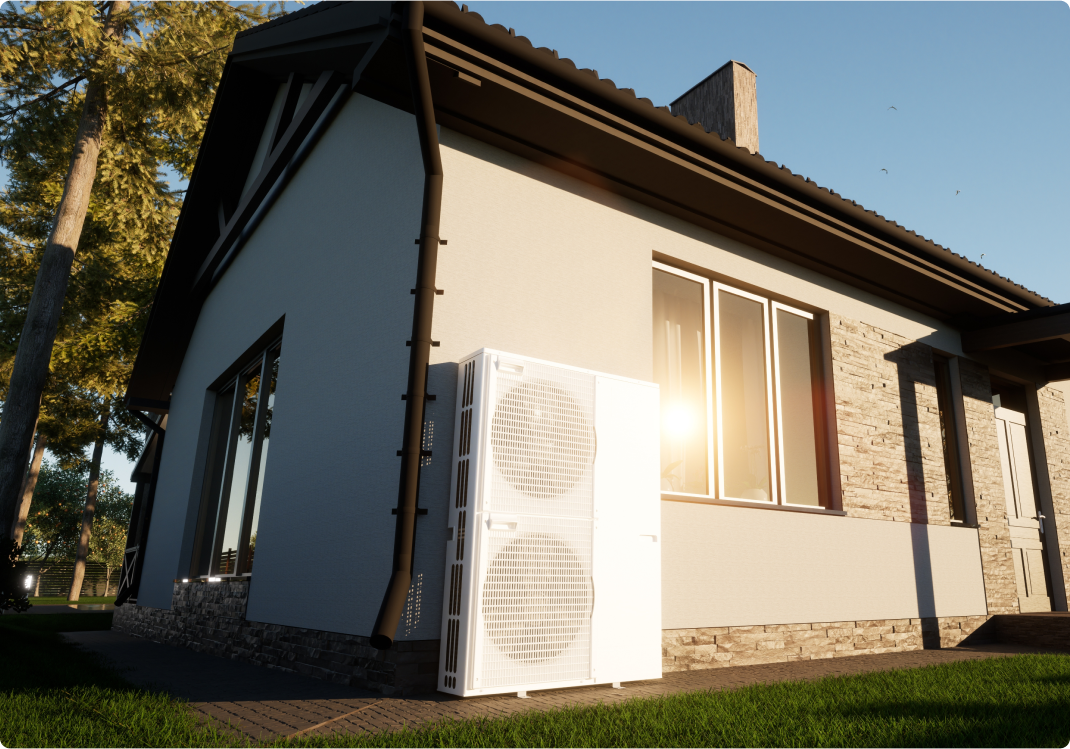If you’re building or remodeling a home, you may think you have only two options when it comes to heating systems: a combustion furnace that burns natural gas, propane, or heating oil, or a heat pump system.
But you actually have a third option: a hybrid heating system.
We’re here to show you the pros and cons of each so you can make an informed decision.
Let’s start with a quick overview of the three types:
- A combustion furnace burns gas or oil to heat your home reliably on even the coldest days of winter.
- A heat pump uses a refrigerant to efficiently transfer heat from outside the home to the inside.
- A hybrid heat system uses a heat pump backed up by a combustion furnace. That kicks in when temperatures fall to a certain level.

Burn, baby burn: The combustion furnace
This type of heating system has long been, likely will continue to be, the most prevalent in American homes. Here’s how it works:
- Gas or oil fuel is sparked into flames by a pilot light or electronic ignition.
- Burners keep the fuel flaming in a combustion chamber as the heated air is blown through your house via a network of ducts.
- Eventually, the air cools and is drawn from the rooms of your home through an air return and routed back to the furnace, where it’s heated again.
- Combustion gasses, including carbon monoxide, are routed out of your home by a flue pipe and chimney.
Combustion furnaces can be plagued by inefficiencies. How well a furnace converts fuel into heat is reflected in its annual fuel-utilization-efficiency (AFUE) rating. The higher the AFUE percentage, the better the furnace is able to use all of the heat generated by the fuel it burns. As technology has improved, so has the efficiency of combustion furnaces. According to "Consumer Reports" magazine, gas furnaces made in the 1970s typically had an AFUE of about 65 percent. The lowest efficiency allowed by law today is 78 percent, and some of the newest models have ratings up to 97 percent. The higher the AFUE, however, the more costly the furnace.
Finally, if propane gas is your only source of combustion, that can increase heating costs since propane is about a third more expensive than natural gas.
Combustion furnace pros
- Reliable heat in even the coldest weather.
- Relatively little impact on the environment.
- Easily connected with your home’s existing HVAC system.
Combustion furnace cons
- Even a well-performing, well-maintained, quality gas furnace will last 10-20 years.
- Typically requires more maintenance to avoid problems such as carbon monoxide leaks.
- Risk of fires, explosions, and carbon monoxide poisoning.

Feel the heat pump
An air-source heat pump uses the unique heat exchange capabilities of a refrigerant to move heat energy from one place to another. The operation is simple:
- Even when the weather is cool, there’s ambient heat in the atmosphere.
- The refrigerant flowing through a heat pump grabs this heat from the outside air and transfers it to an air conditioning coil in the furnace.
- The furnace fan then blows air over the coil, sending warm air throughout the house via its duct system.
A big advantage of a heat pump is that it saves energy. Transferring heat by these means is more energy-efficient than burning fuel to produce heat. Working at peak efficiency, a heat pump can transfer 300 percent more energy than it consumes, compared to 97 percent for the latest combustion furnaces.
The heat pump’s greatest shortcoming is that while it provides sufficient heat in areas with brief and mild winters, the system struggles to extract heat from the outside air, when the temperature falls below freezing, potentially leaving your house chilly and uncomfortable.
Heat pump pros
- Heat and cool your home
- Lower your utility bill
- Safer than gas furnace
- Easy to maintain
- Reduces carbon emissions
- Works in all climates
- Tax rebates
Heat pump cons
- Slightly higher upfront cost
Best of both worlds: the hybrid heat system
The third option is a hybrid heating system or dual-fuel system. An air-source heat pump is backed up by an auxiliary combustion furnace. When temperatures drop below a certain level, the combustion furnace kicks in, keeping your house warm in even the coldest weather.
You can program the temperature at which the system switches from the air-source heat pump to combustion or make the switch manually.
Like hybrid cars, hybrid heating systems cost more than their conventional counterparts. They promise long-term savings by reducing your monthly energy expenditures. Best estimates suggest that a hybrid heating system can save a homeowner between 30 and 50 percent in energy costs over the course of a year. Many hybrid systems pay for themselves within three to five years.
In addition to lowering your utility bills, using a hybrid heating system may qualify you for a tax credit or rebate either from the federal government or your state. Ask your utility company and HVAC contractor about incentives that may be available in your area.
However you choose to keep your home warm and cozy, you'll want to protect the investment you've made in your heating system. That means performing the manufacturer's recommended preventive maintenance-tune-ups every spring and fall.
Stay comfortable year-round. And enjoy some peace of mind.
To help control the costs associated with HVAC repair and replacement equipment, consider purchasing an American Home Shield® home warranty. Our flexible plans can help you protect your home as well as your household budget.
